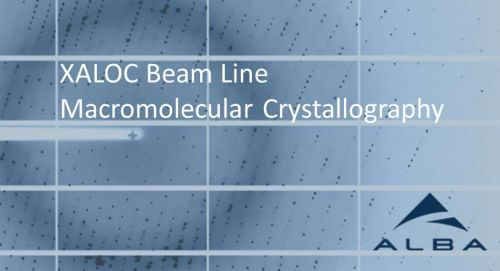
20/07/2018
Molecular mimicry does not mislead ALBA!
Molecular mimicry does not mislead ALBA!
Many intracellular pathogens use molecular mimicry to ensure their survival. A part of a protein of the pathogen resembles another protein totally different from the host and many intracellular microorganisms use this capability to interfere in cellular processes that enable their survival and replication.
Researchers from the CIC bioGUNE in the Basque Country in collaboration with other groups from the United States have carried out experiments at the XALOC beamline of the ALBA Synchrotron and I04 beamline of Diamond Light Source (UK). The results enabled scientists to solve the structure of RavN, a protein of the Legionella pneumophila bacteria that uses this molecular mimicry to trick the infected cell.
Researchers have showed that the structure of RavN has a certain structural similarity with E3 eukaryotes (a set of enzymes) despite its different composition. This result allows making progress in the understanding of the molecular mechanisms active in Legionnaires' disease that can transform into pneumonia and kill infected people.
Article: Yi-Han Lin et al. in PLOS Pathogen
Researchers from the CIC bioGUNE in the Basque Country in collaboration with other groups from the United States have carried out experiments at the XALOC beamline of the ALBA Synchrotron and I04 beamline of Diamond Light Source (UK). The results enabled scientists to solve the structure of RavN, a protein of the Legionella pneumophila bacteria that uses this molecular mimicry to trick the infected cell.
Researchers have showed that the structure of RavN has a certain structural similarity with E3 eukaryotes (a set of enzymes) despite its different composition. This result allows making progress in the understanding of the molecular mechanisms active in Legionnaires' disease that can transform into pneumonia and kill infected people.
Article: Yi-Han Lin et al. in PLOS Pathogen
More news
30/07/2014
Barcelona among the top 10 cities in the world
24/07/2014
Researchers prove the effectiveness of a new drug against malaria using synchrotron light
17/07/2014
Creation of the Health Technologies Cluster
10/07/2014
An international team of scientists led by researchers from the UAB creates the world's first magnetic hose
03/07/2014
CaixaBank and Oracle set up a Big Data Centre of Excellence in the Barcelona Synchrotron Park
26/06/2014
The Barcelona Supercomputing Center hosts two important new international projects









